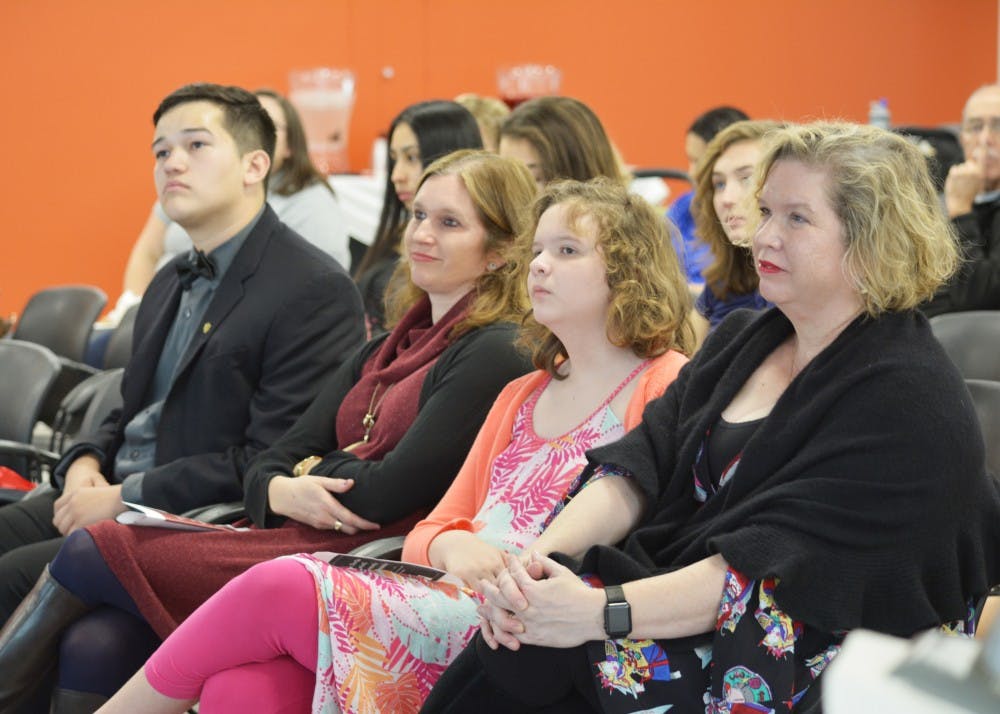If there is one thing students in the Luis Dávila Latinx Thematic Community have learned in their first semester, it is that having a community to support them is crucial to anything that they do.
“Nobody in the history of humankind has ever achieved anything by themselves,” Professor Luis Fuentes-Rohwer, chair of the Latino faculty and staff council, said. “No matter what problem you face, there will always be someone here at IU to help you.”
Students, staff and faculty gathered in Teter Quad on Sunday afternoon, to honor the life of late Professor Luis Dávila. Although he died over two years ago, Dávila’s legacy continues to affect students and faculty all throughout campus. To Dávila, his most important goal was developing a sense of Latino community at IU, because he said he knew progress would not be made unless everyone worked together.
“He devoted almost his entire life to IU-Bloomington,” said John-Nieto-Phillips, Vice Provost for Diversity and Inclusion.
Dávila worked tirelessly to create a sense of community for Latinx students, staff and faculty on campus, including Nieto-Phillips himself. After Nieto-Phillips left his job at New Mexico State University and arrived at IU, Dávila used his quirky smile and outgoing personality to personally make him feel at home, he said.
“He was so warm and welcoming to me,” he said. “I personally feel very indebted to him for helping me adjust to my new life here.”
Inspired by Dávila, Nieto-Phillips became the editor of "Chiricú Journal: Latina/o Literatures, Arts, and Cultures," which was created after a group of Latinx graduate students approached Dávila and said they did not have any outlets to express themselves artistically. Through the help of Dávila, the students created the journal with their own art and poetry.
Today, the journal receives contributions from across the United States.
“The journal exists because of Dávila,” Nieto-Phillips said. “The students really trusted and loved him.”
In addition to Chiricú Journal, Dávila’s name includes an extensive list of achievements, especially his creation of the Chicano-Riqueño Studies Program at IU, which was dedicated to the study of Puerto Rican, Chicano and other Spanish-speaking communities in the U.S. The program is now included in the Latino Studies Program.
Dávila was an accomplished professor, but he was also a husband, father and grandfather.
Both daughters, who attended the celebration in Teter, spoke of how their father inspired them even as children.
“He was all about community and inclusion his whole life,” daughter Roxanne Dávila said. “He installed that in us at a young age.”
Daughter Serena Dávila recalled going to IU basketball games coached by Bobby Knight and coloring inside Ballantine Hall when her father took her to work with him. Even without knowing much about his professional life as a child, she said she could always see his passion for inclusion and community.
“I could always tell how much he cared for his students and how much they cared for him,” she said.
Roxane now works with the Latinx community at Tulane University, and Serena is pursuing her interest in public policy and fighting for the rights of the underrepresented in Washington, D.C.
Even students like Wences Morales, president of the thematic community, who never met Davila said they have felt his presence in the community and have used the space in Teter to make IU their own.
“This is my home away from home,” Morales said. “These are people that I feel more than comfortable calling my family."



